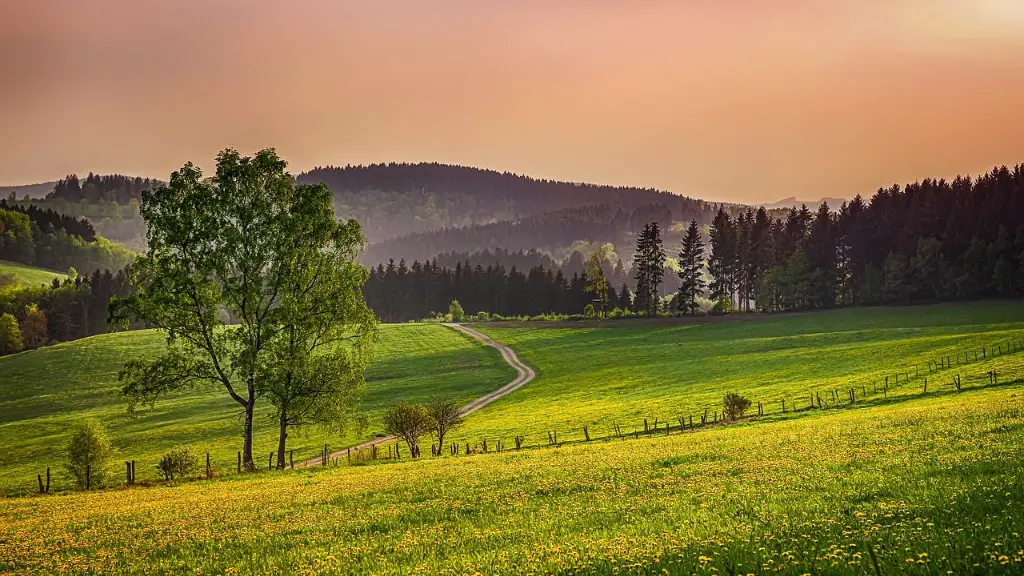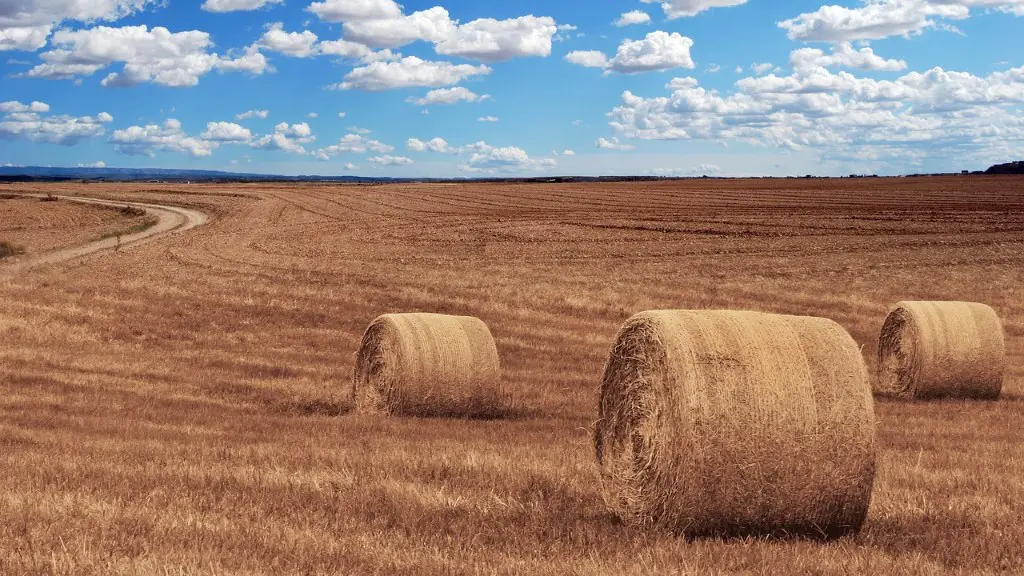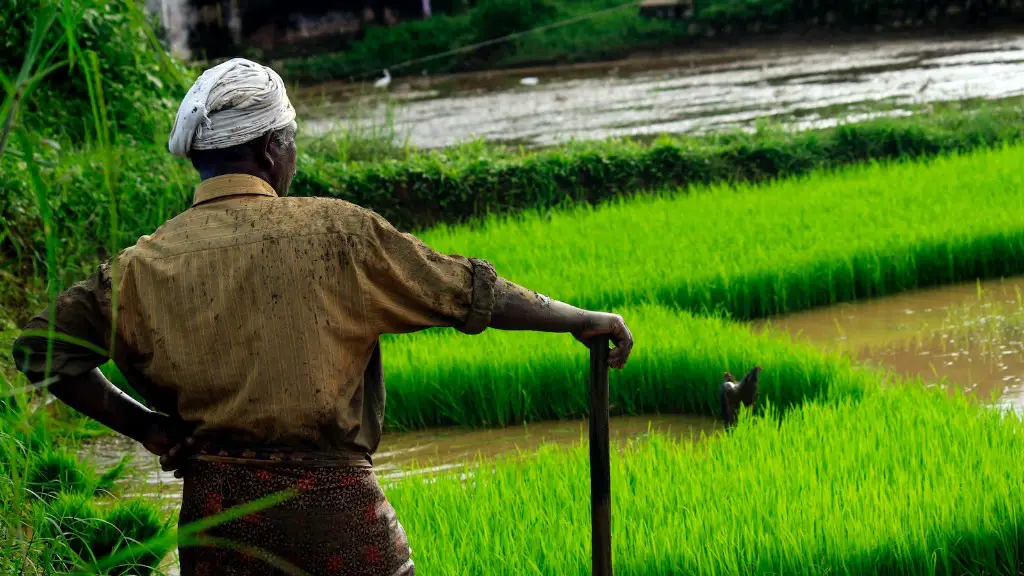Agriculture is an important part of the Northeast region’s economy. From Maine to Maryland, the region is one of the most agriculturally productive areas in the US, thanks to its productive soil, mild climates, and a variety of produce and livestock. The region produces much of the nation’s livestock, poultry, eggs, corn, soybeans, and hay, as well as fruits and vegetables such as apples, potatoes, pumpkins, and peppers. In addition, dairy farmers produce milk, butter, cheese, and yogurt.
Agriculture in the Northeast has evolved over generations. Many farmers in the region are seeking new ways to make their operations more efficient and sustainable. Techniques such as precision agriculture, no-till farming, and cover crops are helping farmers reduce soil erosion, improve crop yields, and increase farmer profitability. In addition, advances in technology are allowing farmers to better manage labor, fertilizer and pesticides, and track yields.
Another key component of the Northeast region’s agricultural industry is forestry. And agricultural forestry, which includes growing trees for timber, has become increasingly important. For example, the state of Maine is one of the nation’s top producers of wood products, including wood chips, shingles, and lumber. Forestry provides important economic benefits to rural communities by providing jobs, enhancing recreation opportunities, and protecting forests from development and urbanization.
Agriculture and forestry also contribute to the region’s tourism industry. Tourists come to enjoy the scenic beauty, recreational activities, and agricultural products that the Northeast has to offer. Farmers often open their farms to tourists to teach them about the history of the landscape and the region’s agricultural practices. Tourists can purchase locally grown products and experience the unique culture.
It is clear that the Northeast region’s agricultural industry is vital to the region’s economy and its people. The abundance of fertile land and natural resources, as well as innovative technology and practices, has helped farmers in the region to produce high-quality products for the global market. As a result, the Northeast region has become an important center for the US agricultural industry.
Organic Farming
Organic farming is growing in popularity across the Northeast region. This practice relies on natural methods to produce and process agricultural products. Organic farmers use no synthetic fertilizers, pesticides, or genetically modified organisms for their crops. Instead, organic products are grown naturally using crop rotation, natural predators, and beneficial soil organisms. Organic products have surged in popularity in recent years due to their healthful reputation and increasing consumer demand.
The Northeast region has seen a surge in organic farming in recent years. Organic farms are popping up in the area, offering local products that nourish and sustain the community. Organic agriculture has been embraced by some of the region’s large corporations and small businesses, as well as by local consumers who are taking part in the new movement. Organic products have also been adopted in restaurants throughout the region.
Organic farming has many benefits for the Northeast region. In general, organic farming is more sustainable than conventional farming, and eliminates risks from pesticides and synthetic fertilizers. Furthermore, organic farming is better for the environment, since it does not require chemical sprays or artificial inputs. Organic farms also benefit the local economy by creating jobs, providing an alternative source of income for farmers, and preserving open spaces.
Organic farming also has its drawbacks. It is more labor-intensive than conventional farming, and organic farmers often have to grapple with higher input costs. However, the benefits of organic farming often outweigh the downsides, and many farmers throughout the region are finding success with organic operations.
Organic farming can offer the Northeast region an opportunity to meet consumer demand and create a sustainable local economy. As consumer attitudes shift towards organic products, farmers throughout the region should continue to take advantage of this rapidly growing sector.
Sustainable Agriculture
Sustainable agriculture is an important part of the Northeast region’s economy. This type of agriculture relies on renewable resources, with an emphasis on minimizing environmental impacts like soil erosion, air and water pollution, and land degradation. As demand rises for sustainable products, many farmers in the Northeast are seeking ways to reduce their impact on the environment and still remain profitable.
One way that farmers in the Northeast are improving sustainability is through the use of cover crops. Cover crops are planted between the growing crops to protect the soil and capture and store nutrients, reducing the need for chemical fertilizers. Cover crops can also aid in the control of pests, weeds, and diseases, while providing habitat and food for local wildlife.
Other techniques used in sustainable agriculture are crop diversification, integrated pest management, and eco-friendly practices, such as conservation tillage. Conservation tillage reduces soil compaction and erosion, as well as the amount of fuel used for plowing. Integrated pest management helps farmers identify and manage pests, and eco-friendly practices may include the use of organic fertilizers or use of sustainable energy sources.
In order to succeed in sustainable agriculture, farmers need access to the resources and information needed to understand the principles of sustainability. Farmer networks, research institutions, and government agencies can provide education and training for farmers to help them develop sustainable practices. With this support, sustainable agriculture can help farmers in the Northeast region remain profitable while also protecting the environment.
Sustainable agriculture is an important tool for the Northeast region’s farmers. By taking steps to reduce their impact on the environment, farmers can produce high-quality products while preserving open spaces and protecting the environment.
Farm to Table Movement
The farm to table movement is an important part of the Northeast’s agricultural industry. This movement focuses on the idea of consuming local, sustainably produced food. Farm to table restaurants have proliferated in the region, providing cuisine that is fresh, seasonal, and locally sourced. It is a way for farmers, restaurants, and consumers to connect, and to ensure that the food being served is of the highest quality.
The farm to table movement is gaining traction in the Northeast region. Many restaurants in the area are embracing the philosophy by creating menus featuring locally sourced ingredients from local farms. This allows restaurant patrons to enjoy fresh, high-quality ingredients that have been grown and harvested in the region. Furthermore, by eating local, customers can support local farmers, strengthening the agricultural community and promoting sustainability.
The farm to table movement has been embraced by businesses, consumers, and farmers. Consumers benefit from being able to taste the best of what’s in season, while farmers benefit from increased demand for their products. For businesses, the farm to table trend is an opportunity to differentiate themselves and build a positive reputation. Furthermore, the increased attention to local sourcing helps to build a sense of community and a connection to the region’s agricultural heritage.
The farm to table movement is an important part of the Northeast region’s agricultural industry. With its emphasis on fresh, locally-sourced ingredients and environmental sustainability, it is one of the most popular trends in the region. By supporting the farm to table movement, businesses, farmers, and consumers can strengthen the agricultural community and enjoy the best of what the region has to offer.
The farm to table movement has gained momentum in the Northeast region and is here to stay. Farm to table restaurants are popping up all over the region, providing fresh and local products for their guests. This movement is a great way for consumers to enjoy the best of what’s in season, while also supporting the local agricultural community.
Agricultural Tourism
Agricultural tourism is an emerging industry in the Northeast. This type of tourism involves visiting farms or agricultural sites, such as wineries or orchards, to experience rural life and agricultural practices. This provides an opportunity for tourists to learn about the history and culture of the region, as well as to participate in activities like picking fruits or helping with chores on the farm.
Agritourism has become increasingly popular in the Northeast over the past decade, with many farms and agricultural businesses offering tours, activities, and products for tourists. Many farmers in the region have begun to open their farms to tourists, offering educational and recreational activities such as hay rides, pick-your-own fruits and vegetables, and farm tours. This provides tourists with a unique way to connect with the landscape and the region’s agricultural heritage.
Agricultural tourism is a great way for the Northeast region to both showcase its unique rural landscape and also increase tourism. This type of tourism allows tourists to experience the culture, history, and natural beauty of the region, while supporting local farmers and businesses. Furthermore, it can increase a community’s economic vitality, as farmers are able to earn income from their land and tourists are able to purchase local products.
Agricultural tourism is an important part of the Northeast region’s economy. From pick-your-own farms to wineries, the region is home to a variety of different types of agricultural activities. By embracing this type of tourism, the region can both preserve its agricultural heritage and provide tourists with a unique and memorable experience.





